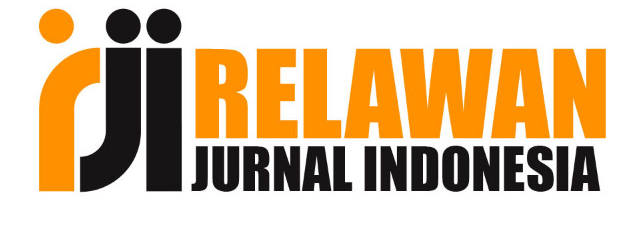Hubungan Motivasi Kerja dan Sistem Pengembangan Pegawai Terhadap Kinerja Pegawai di Koperasi Dharmayukti Pengadilan Tata Usaha Negara Palembang
DOI:
https://doi.org/10.36982/jiegmk.v12i1.1522Abstract
Employees are the most important assets in an agency, so that quality improvement needs to be an important concern in an effort to achieve agency goals effectively and efficiently. In every management activity, efforts should be made to align the goals of employees so that in the end the objectives of the agency can be achieved as much as possible. Performance appraisal is the most reliable tool for managers to control human resources and productivity. Performance appraisal can be used effectively in directing employee behavior, in order to produce high quality and volume of human resources. Managers can use the operational performance process to set the direction of work in selecting, training, guiding career planning, and rewarding competent employees. The essence of employment is basically regulation, potential mobilization, motivation process, and human resource development in fulfilling satisfaction through his work. This is useful for achieving the goals of the individual, organization, or community in which he works. Decisions made regarding manpower are strongly influenced by the philosophy adopted by the leader regarding labor empowerment. For example, views on work motivation, and the concept of labor. From this point of view, an employment pattern will be formed that is adjusted to the image of the leader. Every government and private agency will always try to improve the effectiveness of employees' work. This can be done by developing employee work. Most leaders are very supportive of employee development. The lower the job level, the more labor supply there is. The positions leading to special skills are not filled because of the lack of employees who meet the requirements. A person is trained to carry out the basic arrangements essential for the job, the most common types of training being fieldwork, meetings or discussions.References
Adipati, K. (2018). PENGARUH KOMPENSASI TERHADAP MOTIVASI KINERJA KARYAWAN PADA PT. MNCLEASING PALEMBANG. Jurnal Ilmiah Ekonomi Global Masa Kini, 8(2), 74-78.
Analisa, Lucky Wulan. 2011. “Analisis Pengaruh Motivasi Kerja dan Lingkungan Kerja terhadap Kinerja Karyawan (Studi pada Dinas Perindustrian dan Perdagangan Kota Semarang)â€.
Anwar, Y. (2018). Pengaruh kompensasi dan motivasi terhadap prestasi kerja karyawan PT. Cipta prima kontrindo Palembang-sumatera selatan. Jurnal Ilmiah Ekonomi Global Masa Kini, 8(3), 31-36.
Erwinsyah, E. (2016). Pengaruh Kompensasi Terhadap Motivasi Kerja Karyawan Pdam Tirta Musi Palembang. Jurnal Ilmiah Ekonomi Global Masa Kini, 6(1), 13-17.
Flygplan Kort. 1987. Olson, Sven-Olaf?: Amazon.com: Books
Ghozali, Imam. 2013. Aplikasi Analisis Multivariate dengan Program IBM SPSS 21 Update PLS Regresi Edisi 7. Semarang: Badan Penerbit Universitas Diponegoro.
Handayani, S. (2018). Pengaruh Kompensasi Finansial Terhadap Kinerja Pegawai Harian Lepas di Dinas Lingkungan Hidup dan Kebersihan Kota Palembang. Jurnal Ilmiah Ekonomi Global Masa Kini, 8(1), 12-20.
Harlie, M.. 2012. “Pengaruh Disiplin Kerja, Motivasi dan Pengembangan Karir terhadap Kinerja Pegawai Negeri Sipil pada Pemerintah Kabupaten Tabalong di Tanjung, Kalimantan Selatanâ€. Jurnal Aplikasi Manajemen, Volume 10, Nomor 4.
Hasibuan, Malayu S.P. 2015. “Manajemen Sumber Daya Manusiaâ€. Jakarta: PT Bumi Aksara.
http://heruzi.wordpress.com/2012/07/26/ kumpulan kasus-kasus nyata bentuk prilaku-stress-kerja motivasi- dan- kepuasan -kerja/
Khoyrun, H., Sutanto, A., & Hidayat, A. C. (2020). Pengaruh Kompetensi, Motivasi, dan Lingkungan Kerja terhadap Kinerja Dosen Perguruan Tinggi Swasta Daerah Istimewa Yogyakarta. Jurnal Ilmiah Ekonomi Global Masa Kini, 11(1), 35-39.
Maryam Azar dan Ali Akbar Shafighi. 2013. “The Effect of Work Motivation on Employee’s Job Performance (Case Study: Employees of Isfahan Islamic Revolution Housing Foundation)â€. International Journal of Academic Research in Business and Social Sciences, Vol. 3 No. 9.
Neksen, A., Wadud, M., & Handayani, S. (2021). Pengaruh Beban Kerja dan Jam Kerja terhadap Kinerja Karyawan pada PT Grup Global Sumatera. Jurnal Nasional Manajemen Pemasaran & SDM, 2(2), 105-112.
Nursalam, 2009. Konsep dan penerapan Metodologi Penelitian Ilmu Keperawatan: Pedoman Skripsi, Tesis dan Instrumen Penelitian keperawatan, Edisi 2. Jakarta: Salemba Medika.
Oduma, dkk. 2014. “Influence of Career Development on Employee Performance in The Public University; A Case of Kenyatta Universityâ€. International Journal of Socal Sciences. Management and Enterpreneurship 1 (2): 1-16.
Robbins, S dan Coulter, M. 2007. “Manajemen Edisi Ke-8â€. Jakarta: PT Indeks.
R, Martin. 2012. Journal of Economic Geography. Vol. 12, Issue 1, 1-32.
Suarli, S & Bahtiar, Y. 2002. Manajemen Keperawatan dengan Pendekatan Praktis. Jakarta: Penerbit Erlangga.
Sugiyono. 2014. Metode Penelitian Pendidikan Pendekatan Kuantitatif, Kualitatif, dan R&D. CV Alfabeta. Bandung.
Susilo. 2007. Panduan Penelitian Tindakan Kelas. Yogyakarta: Pustaka Book Publisher.
Winardi, 2016. Manajemen Sumber Daya Manusia. Bandung: PT Remaja Rosdakarya.
Downloads
Published
How to Cite
Issue
Section
License
Authors retain copyright and grant the journal right of first publication with the work simultaneously licensed under a Creative Commons Attribution License that allows others to share the work with an acknowledgement of the work's authorship and initial publication in this journal.
Â
Authors are permitted and encouraged to post their work online (e.g., in institutional repositories or on their website) prior to and during the submission process, as it can lead to productive exchanges, as well as earlier and greater citation of published work.
Â
LP2M Indo Global Mandiri University has the right to multiply and distribute the article and every author is not allowed to publish the same article that has been published in this journal.











